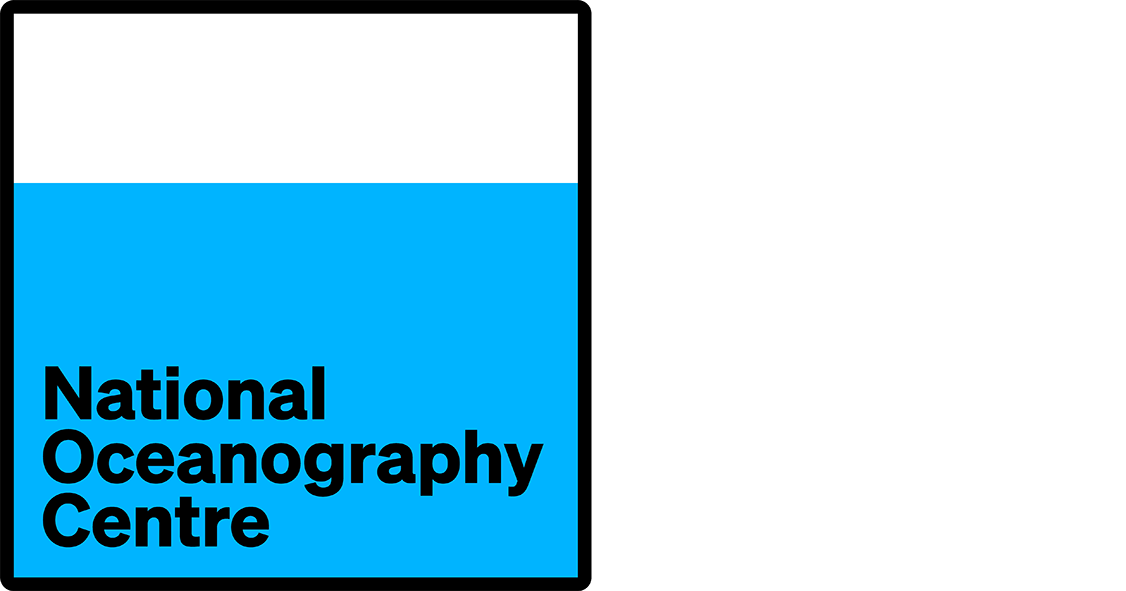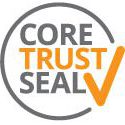Metadata Report for BODC Series Reference Number 276566
Metadata Summary
Problem Reports
Data Access Policy
Narrative Documents
Project Information
Data Activity or Cruise Information
Fixed Station Information
BODC Quality Flags
SeaDataNet Quality Flags
Metadata Summary
Data Description |
|||||||||||||||||||||||||
|
|||||||||||||||||||||||||
Data Identifiers |
|||||||||||||||||||||||||
|
|||||||||||||||||||||||||
Time Co-ordinates(UT) |
|||||||||||||||||||||||||
|
|||||||||||||||||||||||||
Spatial Co-ordinates | |||||||||||||||||||||||||
|
|||||||||||||||||||||||||
Parameters |
|||||||||||||||||||||||||
|
|||||||||||||||||||||||||
|
|||||||||||||||||||||||||
Problem Reports
The data are derived from instruments that were laboratory calibrated but not recalibrated using in-situ sample data, resulting in data of variable quality.
The data originators believe the temperatures to be reasonable but believe the salinity data to be of a quality too poor to be of value to physical oceanographic studies.
The salinity values are within 0.06 ppt of data from other cruises in the vicinity and climatological data.
Data Access Policy
Open Data supplied by Natural Environment Research Council (NERC)
You must always use the following attribution statement to acknowledge the source of the information: "Contains data supplied by Natural Environment Research Council."
Narrative Documents
Neil Brown MK3 CTD
The Neil Brown MK3 conductivity-temperature-depth (CTD) profiler consists of an integral unit containing pressure, temperature and conductivity sensors with an optional dissolved oxygen sensor in a pressure-hardened casing. The most widely used variant in the 1980s and 1990s was the MK3B. An upgrade to this, the MK3C, was developed to meet the requirements of the WOCE project.
The MK3C includes a low hysteresis, titanium strain gauge pressure transducer. The transducer temperature is measured separately, allowing correction for the effects of temperature on pressure measurements. The MK3C conductivity cell features a free flow, internal field design that eliminates ducted pumping and is not affected by external metallic objects such as guard cages and external sensors.
Additional optional sensors include pH and a pressure-temperature fluorometer. The instrument is no longer in production, but is supported (repair and calibration) by General Oceanics.
Specifications
These specification apply to the MK3C version.
| Pressure | Temperature | Conductivity | |
| Range | 6500 m 3200 m (optional) | -3 to 32°C | 1 to 6.5 S cm-1 |
| Accuracy | 0.0015% FS 0.03% FS < 1 msec | 0.0005°C 0.003°C < 30 msec | 0.0001 S cm-1 0.0003 S cm-1 < 30 msec |
Further details can be found in the specification sheet.
RRS John Biscoe Cruise 06 CTD Data Documentation
Introduction
Documentation for the CTD data collected on RRS John Biscoe Cruise 06 (Dec 1985 - Feb 1986) by the British Antarctic Survey, Cambridge, U.K., under the direction of R.B. Heywood.
Data Collection
The instrument used was a Neil Brown Instruments System Mark IIIB CTD. Observed parameters were pressure, temperature and conductivity. All sensors were calibrated before and after the cruise. Up to 12 water bottles were mounted on a Rosette sampler and 4 pairs of reversing thermometers were attached. Water bottles were triggered on the downcast at 10m and at the bottom of the cast, the remainder being fired on the upcast (mainly for chemical samples). Data were collected on the downcast.
Calibration
Reversing thermometers were calibrated at the Deacon Laboratory of the Institute of Oceanographic Sciences. The pressure sensor was compared with a Bourdon gauge which had been calibrated at the National Physical Laboratory. The accuracy of the temperature data is thought to be ±0.01 °C.
Data Processing
Calibrations were applied and the data despiked by rejecting data values outside of predetermined tolerances. Data values were then averaged to provide data at 1 decibar intervals.
Note that it was not possible to recover and reprocess all of the data collected on this cruise to produce 1 decibar values. For those casts which were not reprocessed an earlier version of the data is held by BODC. Few processing details are available for these casts. Calibrations were applied and the data despiked by rejecting data values outside of predetermined tolerances. Derived quantities were computed from algorithms published by Fofonoff and Millard (1983).
The data were averaged to provide values at the following depths:
- Every 5m from 5m to 100m
- Every 10m from 10m from 110m to 200m
- 200m, 250m, 260m, 280m, 300m, 325m, 350m, 375m, 400m, 425m, 450m, 500m
- 600m, 700m, 800m, 900m, 1000m, 1200m, 1500m, 2000m
Salinities from the bottle samples were determined at the British Antarctic Survey using a Guildline Salinometer. Some time after these data were supplied to BODC the salinometer was found to be faulty which casts doubt on the accuracy of the salinity values. The CTD casts that were not reprocessed were:
| BODC Series Reference No. | Originator's Reference | BODC Series Reference No. | Originator's Reference |
|---|---|---|---|
| 76287 | JB06/0068 | 76447 | JB06/0253 |
| 76459 | JB06/0458 | 76460 | JB06/0460 |
| 76484 | JB06/0463 | 76496 | JB06/0471 |
| 76503 | JB06/0517 | 76527 | JB06/0523 |
| 76539 | JB06/0526 | 76540 | JB06/0528 |
| 76552 | JB06/0529 | 76564 | JB06/0530 |
| 76576 | JB06/0531 |
Data Quality
The deep water salinity data from the CTD have been compared with other measurements made in this region and also with the Levitus Atlas. The data which have not been reprocessed are in agreement with data collected on various cruises including Discovery II (1929-31) and within about 0.02 ppt of the Levitus Atlas salinities. The reprocessed salinity data are about 0.04 ppt higher than the data which has not been reprocessed.
References
Fofonoff, N.P. and Millard Jr., R.C. 1983.
Algorithms for the computation of fundamental properties of sea water. UNESCO Technical Paper on Marine Science 44
Levitus, S. 1982.
Climatological Atlas of the World Ocean. NOAA Professional Paper No. 13. US Government Printing Office. 173pp
Project Information
No Project Information held for the Series
Data Activity or Cruise Information
Cruise
| Cruise Name | JB06 |
| Departure Date | 1985-12-28 |
| Arrival Date | 1986-01-22 |
| Principal Scientist(s) | Inigo Everson (British Antarctic Survey) |
| Ship | RRS John Biscoe |
Complete Cruise Metadata Report is available here
Fixed Station Information
No Fixed Station Information held for the Series
BODC Quality Control Flags
The following single character qualifying flags may be associated with one or more individual parameters with a data cycle:
| Flag | Description |
|---|---|
| Blank | Unqualified |
| < | Below detection limit |
| > | In excess of quoted value |
| A | Taxonomic flag for affinis (aff.) |
| B | Beginning of CTD Down/Up Cast |
| C | Taxonomic flag for confer (cf.) |
| D | Thermometric depth |
| E | End of CTD Down/Up Cast |
| G | Non-taxonomic biological characteristic uncertainty |
| H | Extrapolated value |
| I | Taxonomic flag for single species (sp.) |
| K | Improbable value - unknown quality control source |
| L | Improbable value - originator's quality control |
| M | Improbable value - BODC quality control |
| N | Null value |
| O | Improbable value - user quality control |
| P | Trace/calm |
| Q | Indeterminate |
| R | Replacement value |
| S | Estimated value |
| T | Interpolated value |
| U | Uncalibrated |
| W | Control value |
| X | Excessive difference |
SeaDataNet Quality Control Flags
The following single character qualifying flags may be associated with one or more individual parameters with a data cycle:
| Flag | Description |
|---|---|
| 0 | no quality control |
| 1 | good value |
| 2 | probably good value |
| 3 | probably bad value |
| 4 | bad value |
| 5 | changed value |
| 6 | value below detection |
| 7 | value in excess |
| 8 | interpolated value |
| 9 | missing value |
| A | value phenomenon uncertain |
| B | nominal value |
| Q | value below limit of quantification |

